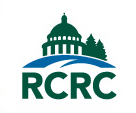April 13, 2018 - Late this week, House Agriculture Committee (Committee) Chairman Mike Conaway (R-Texas) released H.R. 2, the Agriculture and Nutrition Act of 2018, commonly referred to as the 2018 Farm Bill. The Committee is tentatively  scheduled to markup the bill on April 18, 2018, which will be hotly contested along party lines.
scheduled to markup the bill on April 18, 2018, which will be hotly contested along party lines.
The bill is not supported by Democrats on the Agriculture Committee who criticize Republicans for shifting funding from the Supplemental Nutrition Assistance Program (SNAP) to work training and placement programs. The Agriculture and Nutrition Act is expected to also face strong opposition from Freedom Caucus Republicans The Agriculture Committee historically relies on bipartisan support to pass the Farm Bill, but negotiations fell apart between Chairman Conaway and Ranking Member Colin Peterson (D-Minnesota) in March over changes to SNAP.
Senate Agriculture Chairman Pat Roberts (R-Kansas) and Ranking Member Debbie Stabenow (D-Michigan) continue to draft their chamber’s version of a 2018 Farm Bill behind closed doors. Farm Bill legislation will need 60 votes in the Senate, and Chairman Conaway’s bill, as currently crafted, is unlikely to secure the necessary votes. Chairman Roberts and Ranking Member Stabenow hope to unveil their version of the bill next month. Current Farm Bill programs expire on September 30, 2018, but Congress is expected to pass an extension before the deadline to ensure farms and rural communities continue to receive federal funding.
The partisan fight over SNAP funding will overshadow changes to other titles proposed under H.R. 2. The bill includes language to expand broadband deployment and infrastructure in rural areas, streamline environmental regulatory burdens, and provide financial aid for farmers. H.R. 2 amends the Rural Electrification Act of 1936 and the Consolidated Farm and Rural Development Act to create new grant programs that will finance broadband deployment projects for hard to reach rural communities. The text empowers the Secretary of Agriculture to implement a mandatory standard of broadband service for projects funded by Farm Bill programs.
The Agriculture and Nutrition Act includes language that seeks to facilitate forest management and improve commercial infrastructure on federal forest land. The bill amends the Secure Rural Schools and Community Self-Determination Act of 2000 to require 50 percent of Title II funds be spent on activities pertaining to forest management and the sale of forest products. In addition, H.R. 2 reforms environmental law to ease the burden of regulation on forest management activities within federal land. The Agriculture and Nutrition Act streamlines the consultation process required by the Endangered Species Act, creates multiple categorical exclusions for foresters from existing environmental law, and includes several amendments to the Healthy Forests Restoration Act of 2003 promoting forest management activities within federal forests. The regulatory streamlining and categorical exclusions are designed to save time and cut legal costs for the U.S. Forest Service and increase forest management activities that reduce the risk of wildfires in federal forest land.
The Forestry Title of the Agriculture and Nutrition Act includes a California-specific provision authorizing foreign sales of California timber. The language directs the Secretary of Agriculture to designate processed timber of dead and dying trees in California as surplus to domestic timber supplies and therefore exempt from export prohibitions. The authorized regulations will remain in effect for 10 years and the Secretary will be required to consult with California sawmills to avoid adverse effects to industry.
RCRC’s Officers and staff met with lawmakers on Capitol Hill in the months leading up to the 2018 Farm Bill’s introduction to ensure the priorities of rural California are met in the final text. Now that negotiations are underway, RCRC’s federal advocacy partners will continue to engage with lawmakers to bring RCRC’s unique perspective on the issues rural counties face. RCRC will continue to work with policymakers, stakeholders, and our member counties to ensure Congress passes a 2018 Farm Bill with commonsense proposals for developing rural California’s economy and strengthening its communities.
Source: Rural County Representatives of California








